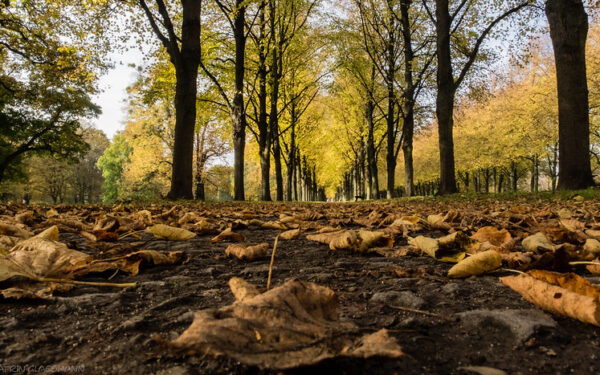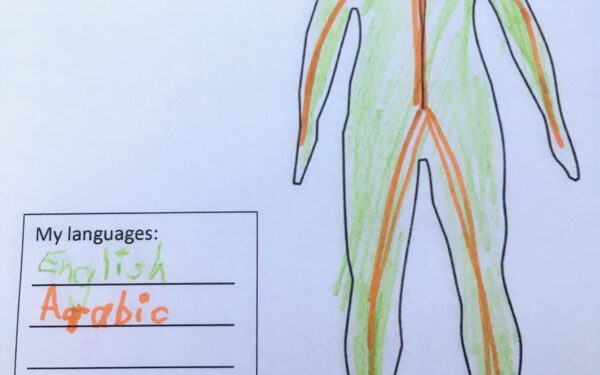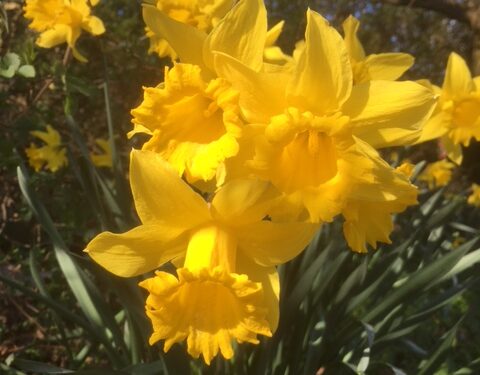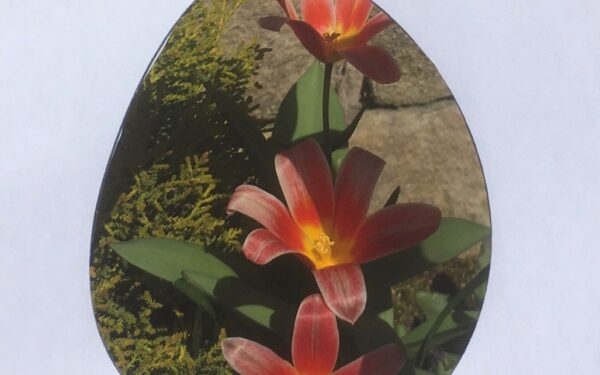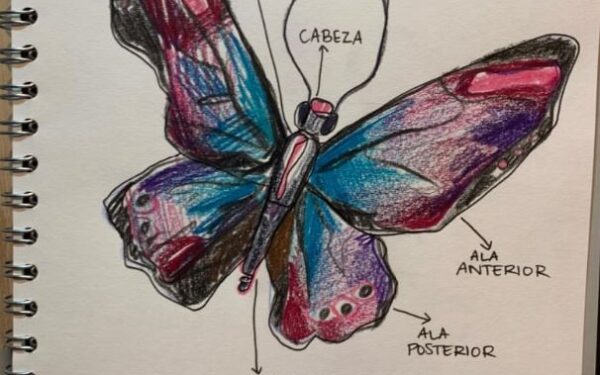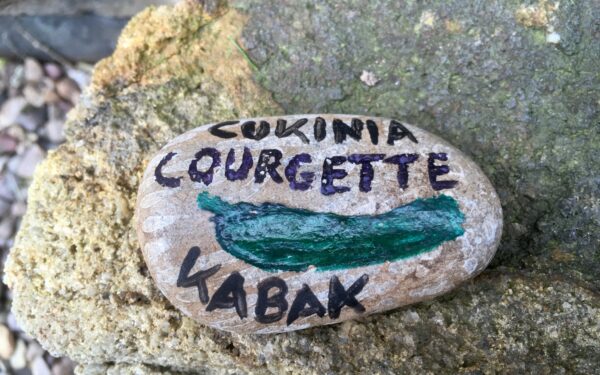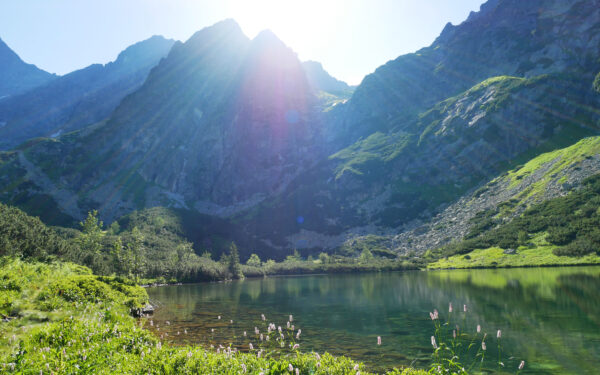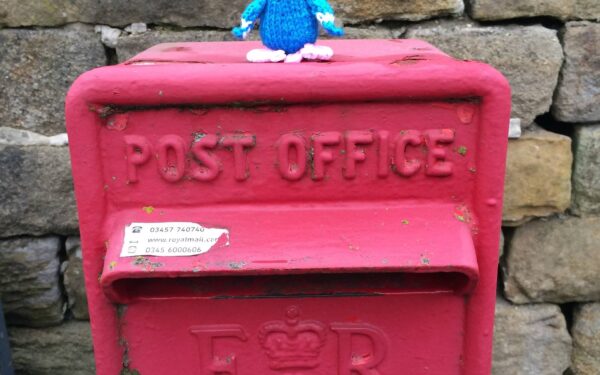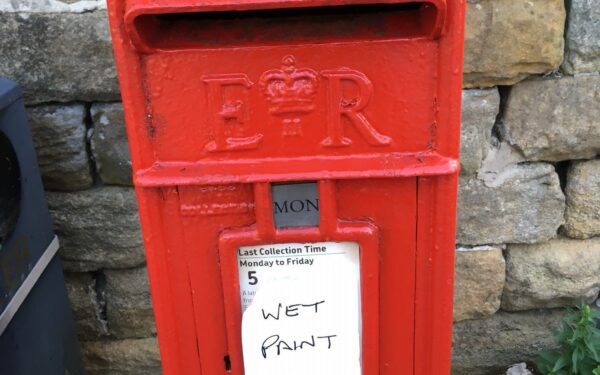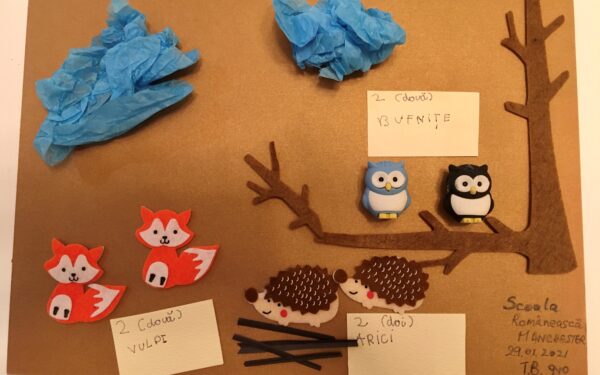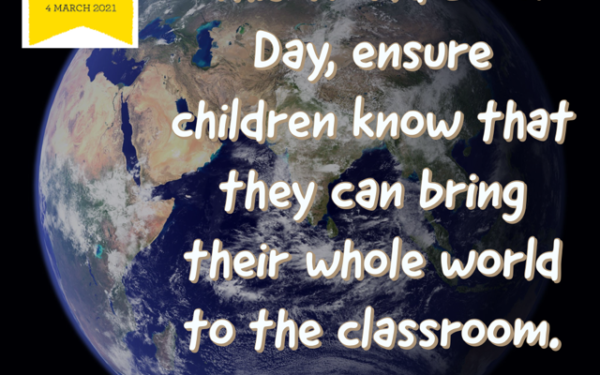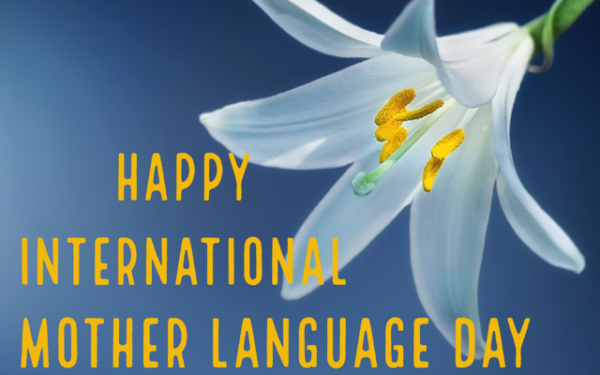This week is the launch of ‘Beat the Street’ in Rotherham, a giant game played in real time in the roads, parks and green spaces surrounding throughout the town. Walk, run, cycle, scoot or skip between Beat Boxes, tap in and collect points, whilst exploring every nook and cranny of your local area. ‘Lost Wor(l)ds’ […]
Read MoreIn search of…language portraits in schools
In today’s blog post, Kexin, one of 11 Masters students undertaking research around the Lost Wor(l)ds project, introduces the Language Portrait Activity and explains why she is hoping to work with a primary school that has used the Language Portrait Activity. If you can help Kexin by facilitating her research (which would mean running the activity in your school and facilitating access to online interviews with children, which can take place outside school hours), please get in touch at lostworlds@sheffield.ac.uk.
Read MoreShinrin-yoku – the art of forest bathing for mental health
If you go out in the woods today, you’re in for…an opportunity to recharge your mental batteries, to find some peace (yes, probably even if you do go with kids). And in Japanese, there is a word for it – shinrin-yoku (森林浴), literally “forest bath”, the concept of consciously emerging yourself in the woods (some of us might have to turn to parks rather than forests, but that’s okay). This blog posts suggests a way to support children through a mindful visit to the woods.
Read MorePosters for Change
‘Posters for Change’ is an opportunity to try and make local change in your area a reality. Whilst you’re out and about exploring your school grounds, green spaces, local parks and even the streets in which you live, you might notice or learn about how aspects of your local environment could be improved. This activity […]
Read MoreLanguage Portraits
Essentially, a language portrait is a tried and tested way to encourage children to talk about their different languages, and how they form a part of their identity. The premise is simple – you choose one colour for each language you consider part of your identity, and colour in the outline of a person, in any way you want. Language Portraits are a great way to create a classroom display, and make multilingualism visible.
Read More‘Go Green’ on Earth Day 2021
Today we are celebrating Earth Day and joining the 2021 global call to take action on climate change and protect our planet. Environmentalism, sustainability and protecting nature are at the heart of the ‘Lost Wor(l)ds’ project. We would like to share how our activities can help your school or class celebrate Earth Day and contribute […]
Read MoreRecycling
This activity is focused on promoting recycling in every classroom, across schools and extending these good habits into children’s homes. The emphasis is on understanding the different types of waste produced in the classroom, identifying them in different languages and how we should deal with them. The final stage in the activity is to create […]
Read MoreSpring Scavenger Hunt
Our Winter Scavenger Hunt has been our most downloaded activity so far, so we hope that our spring version will be equally useful. With lots of opportunities to identify plants and birds, this is the perfect activity to get children outdoors, and use all their languages to explore nature around them.
Read MoreNature Egg / Star Hunt
Teach children to enjoy nature without disturbing it, while also enabling them to explore colours in nature and in their home languages. Although timed for Easter, we are sharing two sets of worksheets – one with eggs and one with stars, to ensure the activity is suitable all year round. Children cut out the shape and use the hole as a frame to go on a colour hunt in nature, with space to write colours in home languages, and, if they can, to name some of the items they find in nature.
Read MoreLost Wor(l)ds and Secondary School
Today in the International Day of Multilingualism – the perfect day to address a question we have been hearing a lot from teachers: is Lost Wor(l)ds just for primary? Are there ways to integrate multilingualism into secondary school? The answer to the first question is a resounding “no”, and the answer to the second question is a resounding “yes”!! This blog post gives some ideas on how to adapt Lost Wor(l)ds activities for secondary school.
Read MoreA multilingual school allotment/garden
The school garden is a prime space to make multilingualism visible, get children interested in nature, healthy eating, and conservation, and to bring creativity to the learning environment. The premise is simple – encourage children to help label the plants, drawing on their language skills. This activity is so straightforward that we have not included a lesson plan as such, but below are some ideas, suitable for different age ranges and materials, for creating suitable labels – please make your own judgment regarding suitability for the children in your care. We would love to see yours, to add them to the photo gallery below!
Read MoreWor(l)d Views: Malgorzata Blicharska
Our second Wor(l)d Views interview introduces the work and languages of Malgorzata Blicharska, who was born in Poland and works as a senior lecturer in Natural Resources and Sustainable Development at Uppsala University in Sweden.
Read MoreLetters for Change
We’ve just launched ‘Letters for Change’ and wanted to take the opportunity to reflect on why the connection between language, place and environmental challenges are so important right now. ‘Lost Wor(l)ds’ is about connecting language to nature, which also includes protecting the natural world. Greta Thunberg inspired children and governments across the world with her […]
Read MoreLetters for Change
This activity seeks to develop children’s understanding of global environmental issues and their connection to language. Children can use heritage language/s (words and phrases or the whole text) to produce a piece of persuasive writing calling for change in respect to a global environmental challenge. The aim is to improve writing skills, extend language knowledge […]
Read More‘Schools of Sanctuary’
So what is a ‘School of Sanctuary’ and how does a school receive this recognition? ‘Schools of Sanctuary’ welcome and actively support refugees and asylum seekers within their local community, including families with children registered as pupils. You might question why this needed, when primary schools already provide a safe and caring environment, in which […]
Read MoreCovid-19 from a complementary school’s perspective
Over the past weeks and months, media has been full of concerns regarding learning, set-ups in schools, home-education, etc. But what has lockdown been like for complementary schools? With schools returning to classroom teaching this week, Alina Badescu, from the Romanian School in Manchester, gives us insights into the impact of the pandemic on learning and teaching at her school.
Read MorePutting the World into World Book Day
Concrete ideas on how to make multilingual reading visible in school – this World Book Day and beyond. Includes downloadable award certificate for multilingual readers.
Read MoreWho has seen the wind?
This activity uses Christina Rossetti’s poem to engage children in listening to, reading, thinking about, and writing poetry, drawing on their full linguistic repertoire. The activity is supported by a video (below), a worksheet, and a PowerPoint presentation.
Read MoreHappy International Mother Language Day
This International Mother Day, we asked on social media what it meant for parents to pass their language on to their children, and for children to be multilingual.
Read MoreView from my window
The aim of this activity is to discover and report on views of nature and the surrounding environment from windows in different places, where different languages are spoken, around the world. ‘View from my window’ allows children to draw comparisons between a favourite or familiar view from a window, with one enjoyed by a friend […]
Read More

